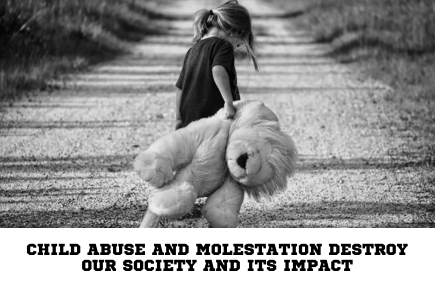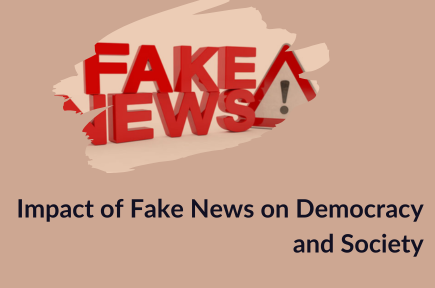Child abuse and molestation are deeply disturbing and pervasive issues that have a profoundly destructive impact on individuals, families, and society as a whole.
These heinous acts, which can take many forms, not only harm the immediate victims but also have far-reaching consequences that extend into the fabric of society.
This article explores the multifaceted ways in which child abuse and molestation wreak havoc on our communities, and the lasting impact they leave in their wake.

Understanding Child Abuse and Molestation
Child abuse and molestation encompass a range of behaviors and actions that cause physical, emotional, or psychological harm to children.
These abuses can take various forms, including physical abuse, emotional abuse, sexual abuse, and neglect.
Molestation, in particular, involves inappropriate and often illegal sexual behaviors toward children.
These actions are typically perpetrated by adults or older individuals in positions of trust and authority over children, such as parents, caregivers, teachers, clergy members, or family friends.
The Immediate Victims
Child abuse and molestation have devastating consequences for the immediate victims.
When children are subjected to abuse, they often endure physical and emotional pain that can have lifelong repercussions.
Physical abuse can result in injuries, broken bones, and even death. Emotional abuse can lead to severe psychological trauma, anxiety, depression, and low self-esteem.
Sexual abuse and molestation can scar victims with guilt, shame, and confusion, affecting their ability to form healthy relationships and trust others.
The Cycle of Abuse
One of the most tragic aspects of child abuse and molestation is the cycle it perpetuates.
Victims of abuse are more likely to become abusers themselves. This perpetuation of abuse can have far-reaching implications for future generations, as the cycle continues.
By understanding this cycle, it becomes clear that tackling child abuse is not only about helping current victims but also preventing future generations from experiencing the same horrors.
Family Dynamics
Child abuse and molestation disrupt the functioning of families. In cases where the abuser is a family member, it can tear families apart. Victims often struggle with feelings of betrayal and confusion, and non-abusing family members may also suffer from guilt, shame, and a sense of powerlessness.
The secrecy surrounding abuse can isolate family members from their support networks and exacerbate the trauma experienced.
Psychological Impact
The psychological impact of child abuse and molestation is profound. Victims may experience a range of mental health issues, including post-traumatic stress disorder (PTSD), anxiety disorders, depression, and even suicidal thoughts or attempts.
The emotional scars from childhood abuse can persist well into adulthood, affecting an individual’s ability to form healthy relationships and live a fulfilling life.
Impact on Society
The consequences of child abuse and molestation extend beyond individual victims and their families. These acts also have a significant impact on society as a whole.
Healthcare Costs
Child abuse and molestation lead to substantial healthcare costs. Victims may require medical treatment for physical injuries, as well as ongoing therapy and mental health services.
The long-term physical and mental health issues associated with abuse can result in a considerable financial burden on healthcare systems.
Legal and Criminal Justice Costs
Child abuse cases often involve the criminal justice system, which incurs significant costs.
Investigation, prosecution, and incarceration of offenders demand considerable resources.
Additionally, the long-term monitoring and supervision of individuals convicted of child abuse or molestation can strain the criminal justice system.
Lost Productivity
The psychological and emotional scars from childhood abuse can lead to lost productivity in society.
Adults who were abused as children may struggle to maintain stable employment, which can result in a higher reliance on social welfare programs.
They may also be less likely to pursue education or career opportunities due to the emotional baggage they carry.
Impact on Education
Children who are victims of abuse often struggle in school due to the emotional trauma they endure.
This can lead to lower educational attainment and future difficulties in finding stable employment.
The educational system also bears the burden of identifying and addressing abuse cases, which diverts resources away from teaching and student support.
Criminalization of Victims
In some cases, victims of child abuse and molestation may engage in criminal behavior as a means of coping with their trauma.
This can lead to their involvement in the criminal justice system as both victims and offenders, perpetuating the cycle of abuse and criminality.
Prevention and Intervention
Addressing child abuse and molestation requires a multi-faceted approach that focuses on prevention, early intervention, and support for victims.
Here are some key strategies to mitigate the impact of child abuse on society:
Education and Awareness: Public awareness campaigns can help people recognize the signs of abuse and know how to report it. Schools, communities, and healthcare providers can play a significant role in educating the public about child abuse and molestation.
Support Services: Providing comprehensive support services for victims, including therapy, counseling, and legal assistance, is crucial. These services can help victims heal and rebuild their lives.
Prevention Programs: Implementing prevention programs that target at-risk families and individuals can help break the cycle of abuse. Such programs can teach parenting skills, offer support to families in crisis, and provide resources to strengthen protective factors.
Mandatory Reporting: Enforcing mandatory reporting laws for professionals who work with children, such as teachers and healthcare providers, can help ensure that abuse is reported promptly.
Legislative Changes: Advocating for and enacting legislative changes that strengthen penalties for child abuse and molestation can act as a deterrent. It can also ensure that abusers are held accountable for their actions.
Research and Data Collection: Gathering data on child abuse and molestation is essential to understand the extent of the problem, identify trends, and tailor prevention and intervention efforts effectively.
Conclusion
Child abuse and molestation are destructive forces that leave a lasting mark on individuals, families, and society as a whole.
The immediate victims endure physical and emotional pain, often leading to a cycle of abuse that continues for generations.
The broader societal impact includes significant healthcare and criminal justice costs, lost productivity, and disruptions in education.
Addressing these issues requires a concerted effort on multiple fronts, including education, awareness, prevention, and support for victims.
By taking proactive steps to combat child abuse and molestation, society can work towards creating a safer and more compassionate world for all children.
It is our collective responsibility to protect the most vulnerable members of our society and ensure that they can grow up in a safe and nurturing environment.

